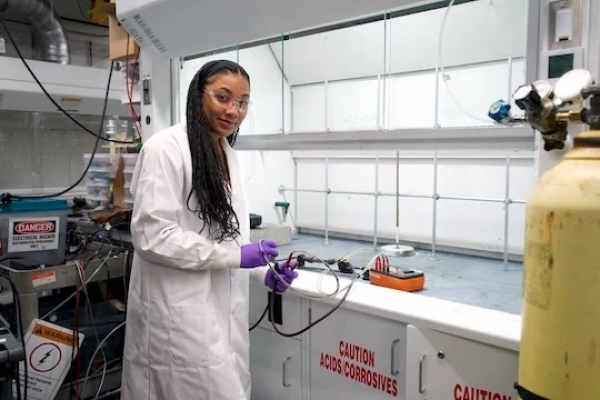Rice University researchers have developed an innovative solution to a pressing environmental challenge: removing and destroying per- and polyfluoroalkyl substances (PFAS), commonly called “forever chemicals.”
Rice University researchers have developed an innovative solution to a pressing environmental challenge: removing and destroying per- and polyfluoroalkyl substances (PFAS), commonly called “forever chemicals.” A study led by James Tour, the T.T. and W.F. Chao Professor of Chemistry and professor of materials science and nanoengineering, and graduate student Phelecia Scotland unveils a method that not only eliminates PFAS from water systems but also transforms waste into high-value graphene, offering a cost-effective and sustainable approach to environmental remediation. This research was published March 31 in Nature Water.
PFAS are synthetic compounds in various consumer products, valued for their heat, water and oil resistance. However, their chemical stability has made them persistent in the environment, contaminating water supplies and posing significant health risks, including cancer and immune system disruptions. Traditional methods of PFAS disposal are costly, energy-intensive and often generate secondary pollutants, prompting the need for innovative solutions that are more efficient and environmentally friendly.
“Our method doesn’t just destroy these hazardous chemicals; it turns waste into something of value,” Tour said. “By upcycling the spent carbon into graphene, we’ve created a process that’s not only environmentally beneficial but also economically viable, helping to offset the costs of remediation.”
Read More: Rice University
Phelecia Scotland is a graduate student at Rice. (Photo Credit: Rice University)




